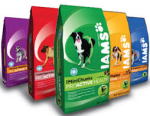 A theme we have been emphasizing in our missives about the pet industry has been the concept of change. Industries evolve for a variety of reasons — innovation, regulation, exogenic shock, mergers/acquisitions, among others. Our view is that the pet industry is changing for another reason — slower growth. The key drivers of pet industry performance over the past five years — the humanization of pets and the pet food upgrade cycle — appear to have peaked and, as a result, we are seeing divergent performance among industry participants as new core themes take hold; innovators continue to take share from incumbents. A logical reaction to this state of play is an increase in deal velocity — incumbents buy innovators, investors fund innovators to accelerate their existing or potential advantage, and large companies consolidate to drive economies of scale. Notably that is exactly what we are seeing and some of those deals could have far reaching implications. The case of Mars, Inc. buying the Proctor & Gamble pet portfolio is an example of this reality in practice.
A theme we have been emphasizing in our missives about the pet industry has been the concept of change. Industries evolve for a variety of reasons — innovation, regulation, exogenic shock, mergers/acquisitions, among others. Our view is that the pet industry is changing for another reason — slower growth. The key drivers of pet industry performance over the past five years — the humanization of pets and the pet food upgrade cycle — appear to have peaked and, as a result, we are seeing divergent performance among industry participants as new core themes take hold; innovators continue to take share from incumbents. A logical reaction to this state of play is an increase in deal velocity — incumbents buy innovators, investors fund innovators to accelerate their existing or potential advantage, and large companies consolidate to drive economies of scale. Notably that is exactly what we are seeing and some of those deals could have far reaching implications. The case of Mars, Inc. buying the Proctor & Gamble pet portfolio is an example of this reality in practice.
When Mars acquired 80% of P&G’s pet food portfolio for $2.9 billion, it should have come as no surprise P&G was largely exiting the pet space. P&G management had been actively seeking to pair its exposure to non-core lines of business and a buyer for their pet brands has been sought for several years. That Mars was on the other side of the transaction, was not a real surprise. After all, only a small handful of companies in the space could have taken a deal of this size down, Mars being one of them. However, Mars has been increasingly active in its food business overseas at the expense of its pet portfolio so many discounted the possibility. On its face, the deal appears to be attractive for Mars. Among the acquired brands, Iams fits nicely into their merchandise matrix, and mitigates the risk they would fall to the number three player in the most important pet market should Big Heart Brands have scooped up the assets. Eukanuba is largely redundant and Natura is a wild card given its recent recalls. What we suspect happened was Mars had sought to buy Iams for some time, and eventually the sides agreed to a deal where P&G threw in more assets (Eukanuba and Natura) and Mars, in turn, agreed to throw in more money. The $1.6 billion portfolio sold for 2.25x revenue after considering the retention of ownership.
While the deal backdrop consists of some mildly compelling drama, more interesting is what it all could mean in terms of change. Of significance, Mars is largely focused on the mass channel, and logic would dictate that they would seek to move Natura into mass at a lower price point. Given the recalls that is where Natura might have some residual value. That scenario could have significant implications for pet specialty assuming a Natura launch is a prelude to other natural brands entering the FDM channel under their flagship brand. The would be a big win for consumers — premium natural pet food at a mass price. This would add additional fuel to the notion that Blue Buffalo, if public, would pursue this very strategy. Further, Big Heart Brands, through its Natural Balance transaction, would be well situated to join this movement despite the promise to keep the brand in channel. The net result is the potential for both share and channel shift but also pet food deflation. Falling food prices would have significant implications for major pet specialty and independents. On a price per pound basis, premium food trades at 2x-3x price premium and a 2x-2.5x profit premium. Price compression would therefore have a significant impact on margin for pet specialty players.
We concede that the scenario above is speculative, but one that increasingly has the potential to be realized in whole or in part. Further, it is one that we would not have given much consideration 12 months ago that everyone should now take seriously.
/bryan
Leave a comment